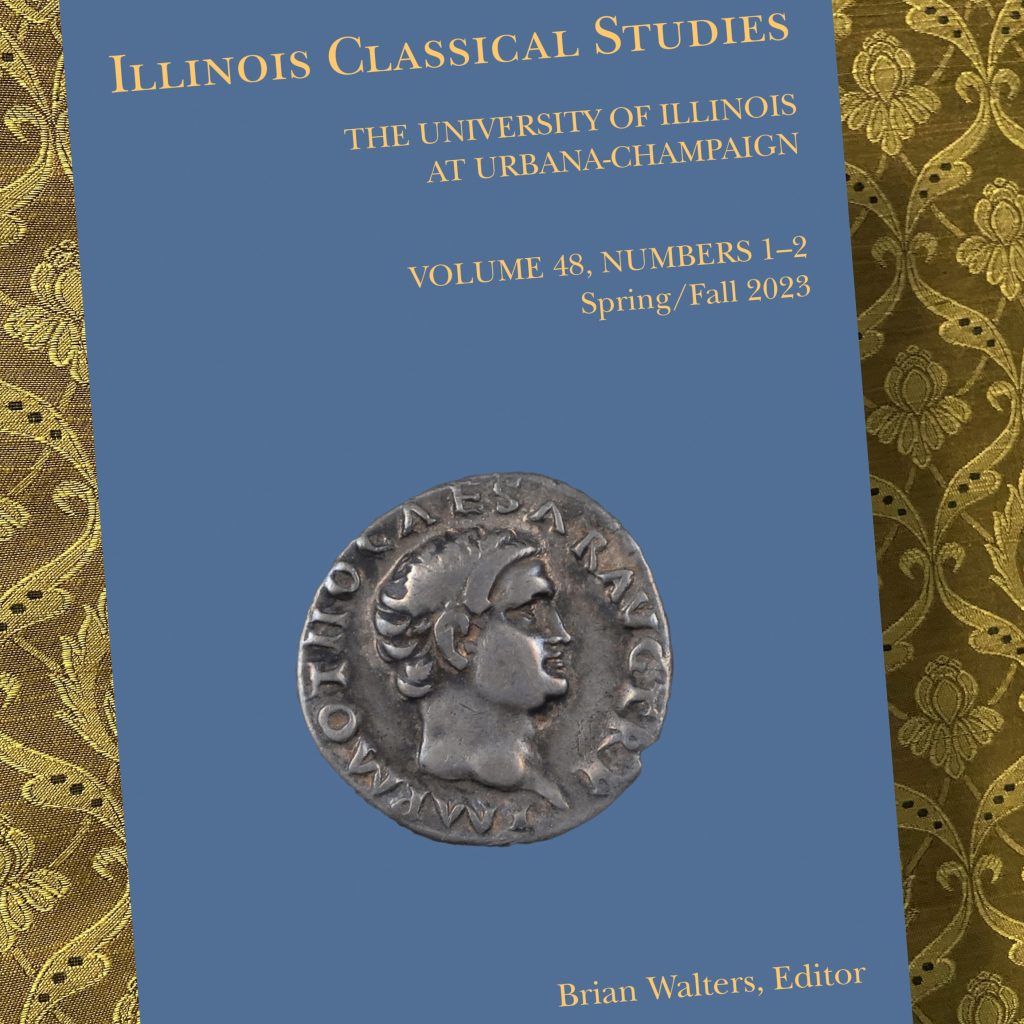Illinois Classical Studies has recently welcomed new editor Brian Walters, who is now inviting submissions to the journal. You can also see below for a selected list of temporarily free to read articles.
“One of the things that continues to make research in the Classics so engaging is the amount of ground, so to speak, that the discipline covers and the ways in which this continues to grow and change,” Walters says.
The journal publishes original research on a variety of topics related to the Classics, in all areas of Classical philology and its ancillary disciplines, such as Greek and Latin literature, history, archaeology, epigraphy, papyrology, patristics, the history of Classical scholarship, the reception of Classics in the Middle Ages, the Renaissance, and beyond. ICS is also thrilled to now be accepting submission of original poetry on Classical themes and translations of ancient poetry.
Ready to see your work featured in Illinois Classical Studies? Submit original scholarly work here.
Recommended Reading
The following articles are being offered for free access temporarily to give all potential authors an opportunity to see some of the journal’s content. If you’re ready to subscribe, you can do so here, or fill out this Library Recommendation Form to suggest that your local or institutional library add Illinois Classical Studies to their collection.
Free access 1/1/2025–3/31/2025
Walters points to Volume 43, Issue 1, a special issue on the comic aspects of disease in antiquity guest edited by George Kazantzidis and Natalia Tsoumpra, as being especially fascinating and enjoyable to read. The first two free articles in this series are from that issue.
“It All Comes Out: Vomit as a Source of Comedy in Roman Moralizing Texts” by Ian Goh
Retching is important for Roman cultural history and medicine; in this article Goh assess vomit’s appearances in Latin literature. Humor is created by the detailed revelation of habitual, inappropriate, and excessive behaviors by named targets, such as the emperors Claudius and Vitellius, and Mark Antony, accused by Cicero in?Philippics?2, especially.?
Free Access 4/1/2025–6/30/2025
What is the significance of each kind of “mad laughter”? Singer identifies fundamental differences, related to the different kinds of character, mental aberration and dramatic conflict presented in each genre, and more broadly to the dramatic structure and function of each.
Free Access 7/1/2025–9/30/2025
By analyzing the disability bias that exists in the ancient literary material, this discussion demonstrates that ancient representations of Claudius are significantly distorted by ableist assumptions and disablist prejudice. In recognizing this, we can understand Claudius on a more contextually appropriate level, unencumbered by mutually exclusive depictions.
Free Access 10/1/2025–12/31/2025
This article argues that the abuse of costume by the women in Lysistrata and Ecclesiazusae displays their dominance over the men while underscoring their femininity. This is particularly important in a genre where women in power are commonly viewed as masculine or androgynous.

